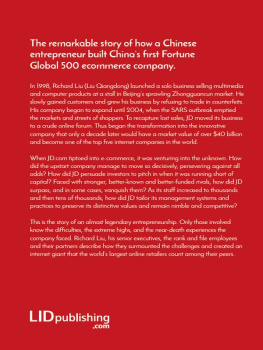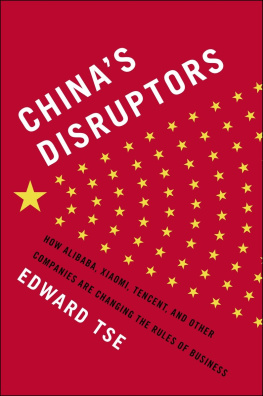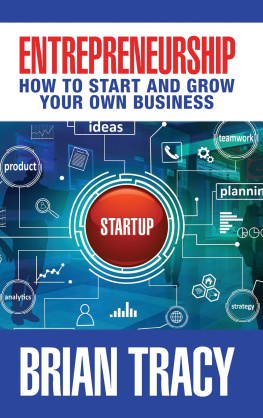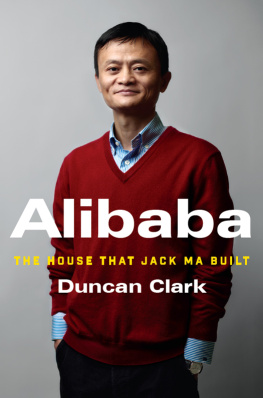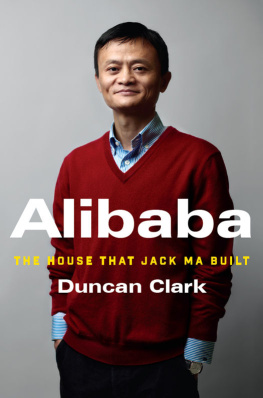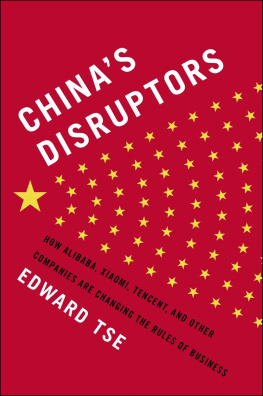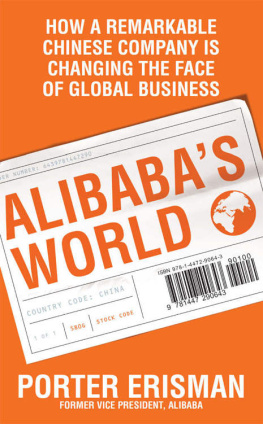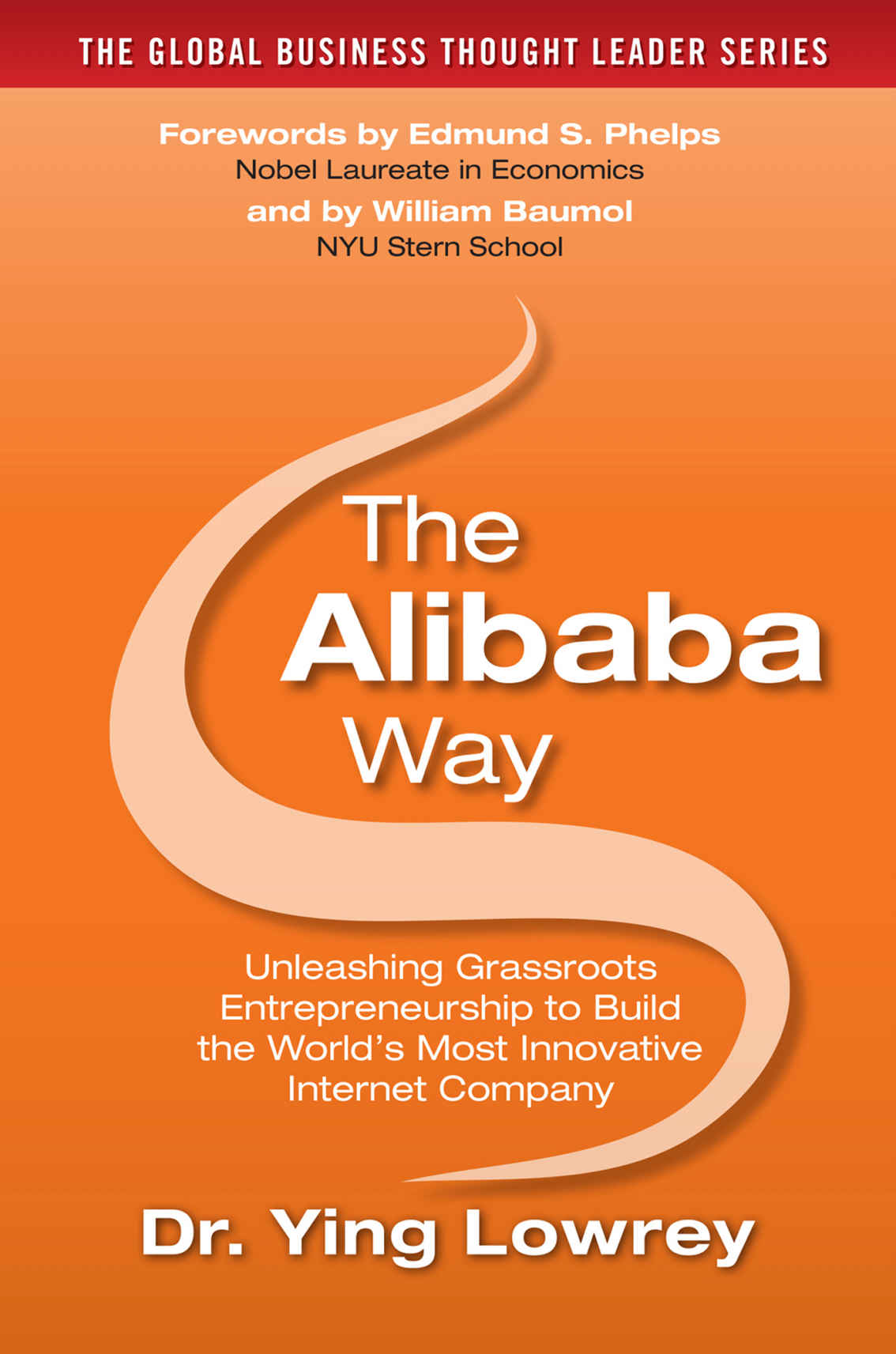Copyright 2016 by McGraw-Hill Education. All rights reserved. Except as permitted under the United States Copyright Act of 1976, no part of this publication may be reproduced or distributed in any form or by any means, or stored in a database or retrieval system, without the prior written permission of the publisher, with the exception that the program listings may be entered, stored, and executed in a computer system, but they may not be reproduced for publication.
ISBN: 978-1-25958541-8
MHID: 1-25-958541-7
The material in this eBook also appears in the print version of this title: ISBN: 978-1-25958540-1, MHID: 1-25-958540-9.
eBook conversion by codeMantra
Version 1.0
All trademarks are trademarks of their respective owners. Rather than put a trademark symbol after every occurrence of a trademarked name, we use names in an editorial fashion only, and to the benefit of the trademark owner, with no intention of infringement of the trademark. Where such designations appear in this book, they have been printed with initial caps.
McGraw-Hill Education eBooks are available at special quantity discounts to use as premiums and sales promotions or for use in corporate training programs. To contact a representative, please visit the Contact Us page at www.mhprofessional.com.
TERMS OF USE
This is a copyrighted work and McGraw-Hill Education and its licensors reserve all rights in and to the work. Use of this work is subject to these terms. Except as permitted under the Copyright Act of 1976 and the right to store and retrieve one copy of the work, you may not decompile, disassemble, reverse engineer, reproduce, modify, create derivative works based upon, transmit, distribute, disseminate, sell, publish or sublicense the work or any part of it without McGraw-Hill Educations prior consent. You may use the work for your own noncommercial and personal use; any other use of the work is strictly prohibited. Your right to use the work may be terminated if you fail to comply with these terms.
THE WORK IS PROVIDED AS IS. McGRAW-HILL EDUCATION AND ITS LICENSORS MAKE NO GUARANTEES OR WARRANTIES AS TO THE ACCURACY, ADEQUACY OR COMPLETENESS OF OR RESULTS TO BE OBTAINED FROM USING THE WORK, INCLUDING ANY INFORMATION THAT CAN BE ACCESSED THROUGH THE WORK VIA HYPERLINK OR OTHERWISE, AND EXPRESSLY DISCLAIM ANY WARRANTY, EXPRESS OR IMPLIED, INCLUDING BUT NOT LIMITED TO IMPLIED WARRANTIES OF MERCHANTABILITY OR FITNESS FOR A PARTICULAR PURPOSE. McGraw-Hill Education and its licensors do not warrant or guarantee that the functions contained in the work will meet your requirements or that its operation will be uninterrupted or error free. Neither McGraw-Hill Education nor its licensors shall be liable to you or anyone else for any inaccuracy, error or omission, regardless of cause, in the work or for any damages resulting therefrom. McGraw-Hill Education has no responsibility for the content of any information accessed through the work. Under no circumstances shall McGraw-Hill Education and/or its licensors be liable for any indirect, incidental, special, punitive, consequential or similar damages that result from the use of or inability to use the work, even if any of them has been advised of the possibility of such damages. This limitation of liability shall apply to any claim or cause whatsoever whether such claim or cause arises in contract, tort or otherwise.
This book is dedicated to two giants in the field: Professor William Baumol for his seminal work on innovation and entrepreneurship, and Professor Edmund Phelps for his contributions to the understanding of the importance of institutions and grassroots dynamism to economic growth and well-being.
I want to thank them for being mentors in my economic research.
CONTENTS
by Edmund S. Phelps
by Chen Liang
by Fang Ruonai
by Xiang Songlin
by Dong Youying
by Huang Lingling
by Quan Tao
by Sun Xiaoyu, Xiang Songlin, and Ying Lowrey
INNOVATION AND GRASSROOTS ENTREPRENEURSHIP: KEY INSTRUMENTS OF ECONOMIC GROWTH
Throughout history, China has been a guide to economic progress, in many eras serving as a model for other nationsthough sometimes showing what approaches are best avoided. Now it has returned to its role as a source of guidance and is again achieving domestic progress and offering the promise of future prosperity. The lessons to be learned will surely be useful to China itself because much of its economy has not yet abandoned older and less productive modes of operation and management. This valuable book offers a guide to the activities that will contribute to Chinas success.
However, such a book will also serve as an instrument that benefits China indirectly by enhancing the purchasing power of other countries that are Chinas customers. Here we must remember that impoverished customers are not good customers. It follows that China stands to benefit both directly and indirectly by understanding the economic activities that enhance prosperity.
A key to progress in this direction is the opportunity for encouragement of entrepreneurial activity, within small enterprises and large firms. Both have already made substantial contributions and promise to remain a source of these benefits in the future. These observations may appear to be self-evident, but it is important to bear in mind that entrepreneurs can be relied on to seek to promote their own gains, whether or not the actions adopted are beneficial to other enterprises.
Recent developments in China have shown dramatically how such a society can benefit from the contributions of entrepreneurs and their colleagues in carrying out the activities of a firm. However, they also have provided unfortunate examples in which entrepreneurs put their own well-being ahead of societys welfare. Evidently, the general welfare requires the adoption of incentives that encourage those entrepreneurs whose activities are beneficial, while discouraging others, whose actions conflict with the interests of society.
In China, some of these incentives already have been put to use. In other cases, the orientation of the firms themselves has contributed to achievement of such goals. But there is still more to be learned from the beneficial undertakings of enterprises that are laggards on the road to progress. Indeed, in China and other countries that have experienced substantial growth, some enterprises have explicitly designed their activities to achieve private benefits at the expense of their employees and their customers.
This book focuses on the firms whose activities contribute to the general welfare through the use of innovationboth in producing and in bringing goods and services to the publicthat also multiplies the benefits to society provided by small entrepreneurs. Based on both observed experience and years of research, Professor Lowreys discussion brings out the developments of the recent past that have enhanced the general welfare.
More than that of any other nation, Chinas history entails a story of invention that is unique in its abundance and, thereby, illustrates dramatically how grassroots entrepreneurship can contribute to the general welfareor, in other circumstances, how it can fail to do so. Such contributions clearly offer extraordinary enhancements to economic growth and, thereby, to the general welfare. The analysis offered in this book indicates directions that will enhance both by using innovation to unleash productive grassroots entrepreneurship.


